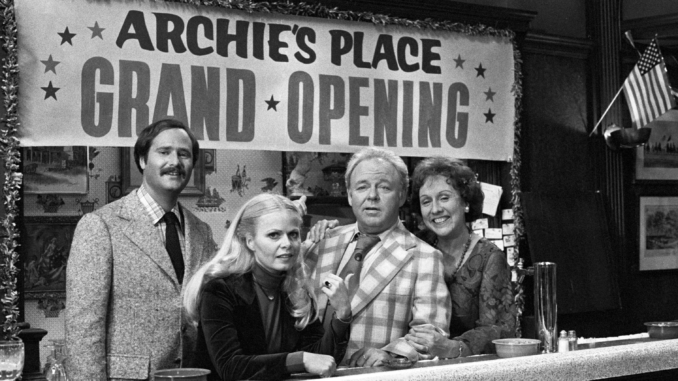
Why All in the Family is Still the Ultimate Game-Changer in TV History!
When All in the Family first aired in 1971, it didn’t just change the landscape of television—it completely revolutionized it. A sitcom that challenged the norms of its time, All in the Family tackled the hot-button issues of race, gender roles, politics, and the generational divide with a boldness that had never been seen before. Today, more than 50 years after its debut, this trailblazing show is still considered one of the most influential TV series in history, laying the groundwork for countless shows that followed. But what made All in the Family so groundbreaking, and why does its legacy still resonate with audiences today?
The Unforgettable Archie Bunker
At the heart of All in the Family is the character of Archie Bunker, played by the incomparable Carroll O’Connor. Archie, a working-class man with outdated and often offensive views, became one of the most iconic TV characters of all time. What made Archie so compelling wasn’t just his bigoted attitude or his loud, boisterous personality—it was how his views reflected the real social tensions of the time.
Archie was a character of contradictions. He was both a loving father and husband, yet also deeply prejudiced and resistant to change. The show’s brilliance lies in how it used Archie’s character to expose the complexities of American society in the early 1970s. Through his interactions with his wife, Edith (Jean Stapleton), and his liberal son-in-law, Mike (Rob Reiner), Archie’s old-fashioned values clashed with the progressive ideals of the younger generation. This generational conflict formed the backbone of the show’s humor, but it also provided a platform for deeper discussions about race, gender, and politics.
Tackling Social Issues Head-On
Unlike any sitcom before it, All in the Family didn’t shy away from controversial topics. In fact, it embraced them. The show tackled issues such as racism, sexism, war, and the civil rights movement in a way that was both shocking and enlightening for its audience. At the time, American television had largely avoided addressing such serious matters, but All in the Family made it clear that comedy could be a powerful tool for social commentary.
For example, Archie’s racist comments about African Americans and his sexist views on women were used to highlight the deep-seated prejudices that existed in American society. Rather than condemning Archie outright, the show allowed viewers to see the world through his eyes, showing both his ignorance and his vulnerability. It was an honest portrayal of a man struggling to cope with the changing times, and it was this unflinching look at societal issues that made All in the Family so revolutionary.
The show also addressed the Vietnam War, a divisive issue at the time, with episodes like “The Draft Dodger” and “The War Hero,” in which Archie and his son-in-law clash over the war’s moral implications. These episodes not only entertained but also forced viewers to confront their own beliefs about the conflict.
The Legacy of All in the Family
All in the Family didn’t just spark a cultural conversation—it started a new era in television. The show was a critical and commercial success, earning numerous awards, including multiple Emmy Awards, and influencing the development of future sitcoms. Shows like Maude, The Jeffersons, and Good Times all followed in the wake of All in the Family, tackling similar themes of social change and political debate.
One of the most significant ways that All in the Family influenced future television was by showing that sitcoms didn’t have to be “safe.” The success of the show demonstrated that audiences were ready for content that was both funny and thought-provoking, paving the way for shows like The Simpsons, All in the Family’s spiritual successor, and South Park, which would go on to use humor to tackle the most sensitive and controversial topics of their time.
The influence of All in the Family extends beyond television. Its impact on pop culture is undeniable. Archie Bunker became a household name, and his catchphrases like “Stifle yourself!” and “Meathead” became part of the American lexicon. The show also provided a platform for important conversations about social justice, equality, and the complexities of modern life that are still relevant today.
A Timeless Show for Today’s Audience
Though All in the Family aired its final episode in 1979, its themes and humor are as relevant as ever. The show’s ability to balance comedy with social commentary makes it a timeless classic, one that continues to resonate with new generations of viewers. Today, in an era where issues like racism, gender inequality, and political polarization remain as contentious as ever, the lessons of All in the Family are still invaluable.
The show’s brilliance lies in its ability to make us laugh while also making us think. It reminds us that humor can be a powerful tool for tackling difficult issues, and that sometimes, the most uncomfortable conversations are the ones that are most worth having.
So, if you haven’t already, now is the perfect time to revisit All in the Family. It may have aired in the ’70s, but its lessons and laughs are timeless.
